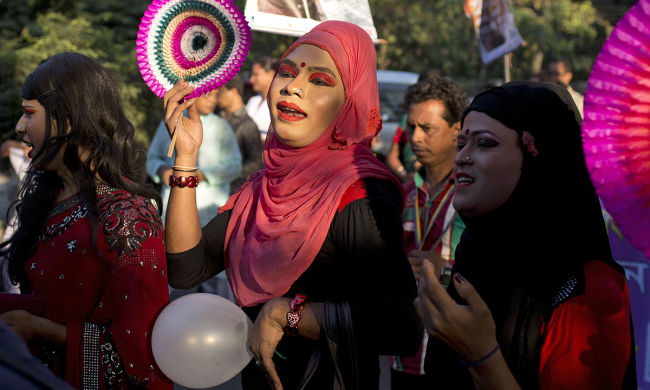-
Tips for becoming a good boxer - November 6, 2020
-
7 expert tips for making your hens night a memorable one - November 6, 2020
-
5 reasons to host your Christmas party on a cruise boat - November 6, 2020
-
What to do when you’re charged with a crime - November 6, 2020
-
Should you get one or multiple dogs? Here’s all you need to know - November 3, 2020
-
A Guide: How to Build Your Very Own Magic Mirror - February 14, 2019
-
Our Top Inspirational Baseball Stars - November 24, 2018
-
Five Tech Tools That Will Help You Turn Your Blog into a Business - November 24, 2018
-
How to Indulge on Vacation without Expanding Your Waist - November 9, 2018
-
5 Strategies for Businesses to Appeal to Today’s Increasingly Mobile-Crazed Customers - November 9, 2018
Pakistani Muslim clerics say transgender people can marry, shouldn’t be harassed
The fatwa declares that an intersex person called Khunsa-e-Mushkil in Islamic Sharia, can not marry at all.
Advertisement
However, this fatwa was not without its set of qualifications as only those transgenders who have “visible signs of being a male” could marry a woman or a transgender with “visible signs of being a female” could marry a man.
The fatwa while addressing common societal approaches towards transgenders termed “haraam” (forbidden) an act that intends to “insult, tease, or humiliate” them.
Further, the fatwa declared that transgender persons were entitled to their fair share of inheritance and that parents who deprived them of this were “inviting the wrath of god”, and called on the government to take legal action against such parents.
“The hijras [transgender persons] are human beings and they have rights given by Islam”, said Muhammad Zia ul Haq Naqshbandi. There have been cases where members of the community have died because they were refused medical treatment for life-threatening wounds.
If that’s not all, the transgender person will also be buried with complete religious rites and will not be condemned for their sexual orientation, reported RT.
The fatwa was issued by clerics affiliated with Islamic organisation Ittehad-i-Ummat Pakistan. Over the past two years, over 45 transgender people have been killed in the Peshawar region alone.
Alisha, who was shot eight times, was in critical condition when admitted to hospital but staff could not decide whether to put her in a male or female ward, according to her friends. They’ve said trans men can marry women, and trans women can marry men.
Qamar Naseem, a transgender community activist, praised the clerics for the decree.
Given that religion and politics are so closely intertwined in Pakistan, the fatwa carries a significant amount of weight, though it’s technically not legally binding in any way. But the fatwa alone was not enough, he claimed, as “the country needs to introduce legislation on [transgender rights]”.
Advertisement
Last month, the shooting of a transgender woman at her home in northern Pakistan triggered protests across the country.





























